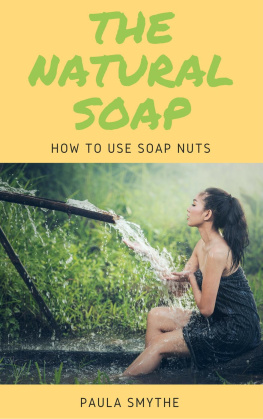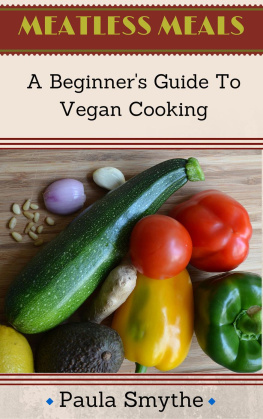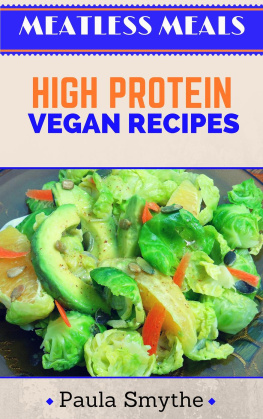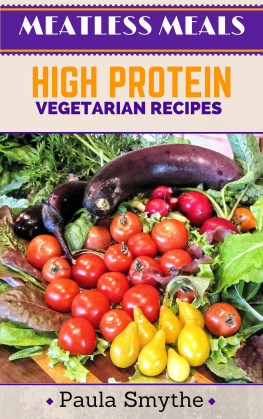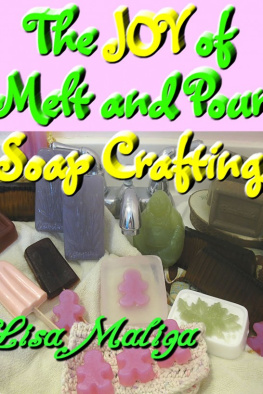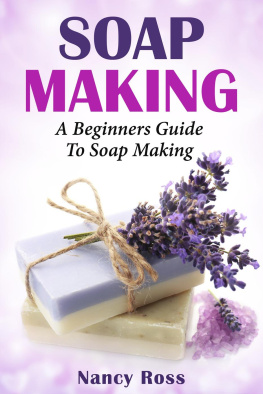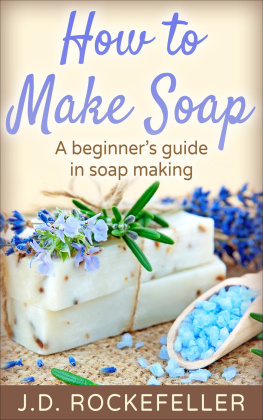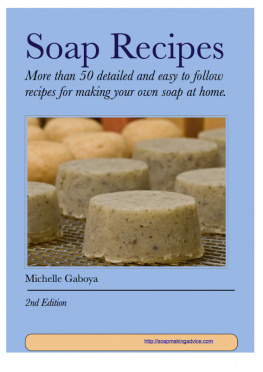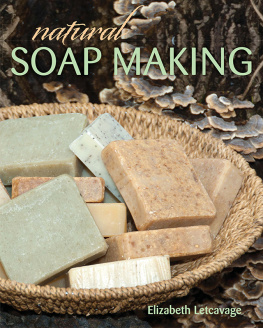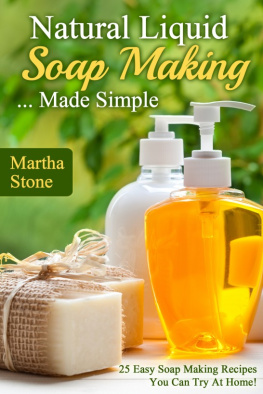The Natural Soap
Paula Smythe
Published by Paula Smythe, 2017.
While every precaution has been taken in the preparation of this book, the publisher assumes no responsibility for errors or omissions, or for damages resulting from the use of the information contained herein.
THE NATURAL SOAP
First edition. February 1, 2017.
Copyright 2017 Paula Smythe.
ISBN: 978-1386561712
Written by Paula Smythe.
10 9 8 7 6 5 4 3 2 1
Also by Paula Smythe
Meatless Meals
Vegetarian: A Beginner's Guide To Vegetarian Cooking
Vegan: A Beginner's Guide to Vegan Cooking
Vegan: High Protein Vegan Recipes
Vegetarian: High Protein Vegetarian Recipes
Plant-Based Protein Guide: High Protein Vegan and Vegetarian Recipes For Athletic Performance and Muscle Growth
Plant-Based Starter Kit: Vegan and Vegetarian Recipes For Beginners
Standalone
The Natural Soap
5 Minute Fudge Machine: Experiments in the Dark Arts of Fast Fudge
Soap Nuts: The Natural Soap
What Are Soap Nuts, And Why Should I Care?
U ntil recently, I had never heard of soap nuts. If you're anything like me, then when your heard "soap nuts" you thought about some new trick to turn almonds into hand soap. I'm not alone on that one, am I?
As it turns out, soap nuts are not even nuts, but they are really soap. They are actually the berries of the Sapindus mukorossi tree - Sapindus literally means "soap of India". Soap nuts have been used by native people of Asia for washing for thousands of years. And as it also turns out, they're really effective at cleaning just about everything. They live up to the hype.
So what are soap nuts? I'm glad you asked. As I just mentioned, they're actually berries from a tree that's related to the lychee fruit. Except soap nuts (sometimes called soap berries) are very bitter, and not at all good to eat. But, what they lack in taste they make up for in utility, because these little goobers sure can clean. Oh, and if you have a nut allergy? No worries, because again - soap nuts aren't nuts!
And that's not the only thing that they have going for them. If you have sensitive skin, or a skin condition like eczema or psoriasis, these berries can probably help you out simply due to not having any of the harsh additives and chemicals that a commercial detergent has in it. They get the job done without those additives, and are gentler on your skin because of it.
This natural soap is perfect for washing anything for your baby. If you use soap nuts to launder your cloth diapers, blankets, or baby clothes you don't have to worry about using chemical-laden detergents or fabric softener. Soap nuts provide natural softening as part of the process, and they wash away with less residue than commercial products, meaning that they leave your baby's sensitive skin happy while increasing the lifespan of the diapers themselves.
You see, soap nuts contain a compound known as saponin, which is a natural surfactant. Surfactants are what allows soap to loosen dirt from things, and wash it away. More on that later. There's a whole section of how saponin works to clean your clothes better than the detergents you normally use. It gets a bit technical, but hopefully I've made it clear enough to understand.
Do you know what isn't technical? Soap nuts can save you money, and are good for the environment. That's pretty easy to understand, right? Let me explain how.
First off, I'll show you the money. It takes only around 5 soap nuts to wash a load of laundry. We're talking pennies per load here. And on top of that, you can reuse the nuts for multiple loads until they pretty much start to fall apart, which is when you need to replace them with fresh nuts. And even then, you can still squeeze a bit more cleaning power out of them by adding them to your next batch of liquid soap. The details and recipes for laundry and liquid soap are given later in this booklet.
Next, let's discuss how soap nuts help you leave a smaller imprint, which may save you money and resources in other ways. You see, the nuts themselves are completely biodegradable, and once they are used up, you can just add them to your compost pile, leaving no waste behind. Also, the waste water is safe enough to use in your lawn, and maybe even your garden. At the very least, it won't contain the nasty chemicals and foaming agents found in commercial detergents, which means that it is better for your septic system or grey water system.
Don't care because you're connected to the city sewage system? Well, waste water treatment plants have to add de-foaming agents to the water to combat the foaming agents in commercial products. So in some small way, you're saving yourself money there, too.
And by the way, that lack of foam isn't a problem. You've been tricked by big companies to think that the foam means that the soap is working. They're just blowing bubbles up your you-know-what. Suds are not an indicator of cleaning power, at all. And if you have a HE washer, or a front-loading washer, that lack of foam will be a good thing. If you have a different type of washer, you're covered too. Soap nuts can be used in any setup, including hand washing.
Finally, there's a real ecological benefit for making the switch to soap nuts. The Sapindus trees love poor soil where not much else will grow. They're weird like that. And not only that, but because saponin tastes bitter to insects too, and is contained throughout the different parts of the tree, there is no need to use chemical pesticides to grow soap nuts - insects leave them alone.
The supply of soap nuts also vastly outweighs demand right now. It's estimated that half of the berries that grow are not being used, and just fall off the trees to rot. But the other half are hand-harvested, which provides jobs, and then are allowed to dry naturally in the sun. Then, because the berries are hard dried things, they can be shipped in natural containers such as cardboard, instead of the environmentally unfriendly, thick plastic bottles that laundry detergent normally comes in.
So that works out for just about everybody.
In fact, unless you're a fish, soap nuts are kind of awesome. If you happen to be a fish, though, stay away - saponin, the natural soap in soap nuts, is poisonous to fish. It was once used by indigenous peoples as a method of fishing. They would put saponin in the water of a stream, and the dead or stunned fish would be collected further down the stream. The practice is now illegal for most, but some tribes can still use it.
I hope I answered your questions about soap nuts. Now let's get into the details of how they clean things.
How Soap Nuts Work
T his section is going to get a little bit technical, so I'll give you a long and short version of how soap nuts work.
Short version:
Soap nuts naturally contain saponin. Saponin is a surfactant. Surfactants loosen dirt from fabrics, and then binds to that same dirt, so that the dirt gets washed away.
Long version:
Surfactants come in different varieties, but are the same type of molecules in any soap. Surfactants have two properties that make them useful for cleaning.
The first property is that they change the surface tension between a liquid and a solid, or between two liquids. This is what emulsifiers do in foods such as salad dressings, allowing oil and vinegar to combine when they normally would not. But in our case, using them as soap, surfactants change the surface tension between the water and the fabric, allowing the water to penetrate better, thus causing the dirt to loosen from the fabric.
That's easy enough to understand.
The second property of surfactants is a little bit more complicated. You see, they have two sides with different charges - just like a magnet. One side pushes the surfactant molecule away from the fabric, even as it allows water to penetrate the fabric.

